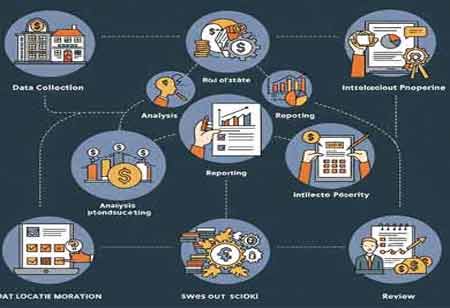CLOSE
Specials
- RegTech Europe
- Financial Risk Management APAC
- Investment Banking APAC
- Corporate Advisory APAC
- Regtech APAC
- Escrow Services
- Digital Banking Latam
- Trading Solutions APAC
- Treasury Management Europe
- CPA Firms Canada
- Financial Risk Management Europe
- Mortgage Broker
- Financial Licensing Europe
- RIA Advisory Europe
- FinTech Canada
- Financial Asset Management APAC
- Investment Banking Canada
- Payment Solution
- Lending Mangment Latam
- Payment Solution Europe
- Broker Dealer Firms Canada
- Alternative Investments Canada
- Financial Fraud
- Investment Management Latam
- Financial Health Europe
- Lending mangment
- Financial Marketing
- Proprietary Trading Europe
- Wealth Management
- FinTech
- Financial Brokerage Firm APAC
- Investment Advisory Europe
- Investment Advisory APAC
- Wealth Management MENA
- Claim Adjusting
- Claim Adjusting APAC
- Mergers and Acquisitions Consulting APAC
- Equipment Financing
- CPA Firms
- Mergers and Acquisitions Consulting Canada
- Investment Services
- Valuation Services Canada
- Wealth Management APAC
- Broker Dealer Firms
- Debt Collection Agencies
- Mergers and Acquisitions Consulting
- FinTech Europe
- Fintech Latam
- Financial Planning / Retirement
- Investment Management
- Financial Compliance
- Digital Banking Europe
- CFO Services
- Debt Collection Agencies Europe
- Wealth Management Europe
- Mergers and Acquisitions Consulting Europe
- Financial Restructuring Europe
- Financial Portfolio Management Canada
- Business Loan
- Payment and Card Latam
- Wealth Management Latam
- Mergers and Acquisitions Consulting Latam
- Tax Advisory Canada
- Trading Solutions Europe
- Alternative Investments
- Digital Insurance Europe
- Investment Services Latam
Weekly Brief
×Be first to read the latest tech news, Industry Leader's Insights, and CIO interviews of medium and large enterprises exclusively from Financial Services Review
Thank you for Subscribing to Financial Services Review Weekly Brief
Perks of Utilizing AI for CFOs
The Chief Financial Officer (CFO) role is evolving rapidly, integrating artificial intelligence (AI) technologies into financial operations.

By
Financial Services Review | Wednesday, March 13, 2024
Stay ahead of the industry with exclusive feature stories on the top companies, expert insights and the latest news delivered straight to your inbox. Subscribe today.
AI can improve risk management by detecting threats and weaknesses in financial systems.
FREMONT, CA: The Chief Financial Officer (CFO) role is evolving rapidly, integrating artificial intelligence (AI) technologies into financial operations. Leveraging AI can significantly enhance a CFO's ability to drive strategic decision-making, improve efficiency, and mitigate risks. AI-powered predictive analytics can revolutionize financial forecasting. By analyzing historical data, market trends, and other relevant factors, AI algorithms can generate highly accurate forecasts, enabling CFOs to make informed decisions regarding budgeting, resource allocation, and investment strategies. The capability allows CFOs to anticipate market shifts and proactively adjust their financial plans to maximize profitability.
AI-driven tools can automate the process of data analysis and reporting, saving valuable time for CFOs and their teams. These tools can extract insights from enormous volumes of financial data, identify patterns, and generate comprehensive reports in real-time. By eliminating manual data processing tasks, CFOs can focus on interpreting insights and devising strategic initiatives to drive business growth. AI technologies can enhance risk management by identifying potential threats and vulnerabilities within financial systems. ML algorithms can analyze transactional data to detect unusual patterns or anomalies indicating fraudulent activities or compliance breaches.
AI-powered cash flow management tools can provide CFOs real-time visibility into cash inflows and outflows, enabling proactive cash flow optimization strategies. These tools can analyze historical cash flow patterns, predict future cash positions, and recommend actions to optimize working capital and liquidity. By effectively managing cash flow, CFOs can ensure financial stability and support strategic initiatives such as expansion or investment in innovation. By leveraging AI for risk management, CFOs can strengthen internal controls, minimize economic losses, and safeguard the company's reputation. AI-driven budgeting and expense management platforms can streamline the budgeting process and improve expense tracking accuracy.
The platforms can analyze historical spending patterns, identify cost-saving opportunities, and recommend budget allocations based on organizational priorities. By leveraging AI for budgeting and expense management, CFOs can optimize resource allocation, minimize waste, and maximize ROI. AI algorithms can analyze market dynamics, competitor pricing strategies, and customer behavior to optimize real-time pricing decisions. By dynamically altering prices based on demand fluctuations and other factors, CFOs can maximize revenue and profitability. AI-powered pricing optimization tools enable CFOs to implement agile pricing strategies that respond quickly to changing market conditions and customer preferences.
AI-driven financial planning tools can facilitate scenario analysis and strategic planning by modeling various business scenarios and their potential impact on economic performance. CFOs can use these tools to evaluate different strategic options, assess their financial implications, and identify the most favorable course of action. By conducting comprehensive scenario analysis, CFOs can make informed findings that align with the organization's long-term objectives and mitigate risks. AI technologies can help CFOs ensure compliance with financial regulations and industry standards by automating compliance monitoring and reporting processes. These tools can analyze vast amounts of regulatory data, identify compliance gaps, and generate audit trails to demonstrate adherence to regulatory requirements.
Leveraging AI technologies can empower CFOs to elevate their performance and drive value for their organizations. By harnessing the power of predictive analytics, automated data analysis, risk management, cash flow optimization, budgeting, pricing optimization, scenario analysis, and compliance management, CFOs can make more informed decisions, optimize financial performance, and navigate the complexity of today's business landscape with confidence and agility. By leveraging AI for compliance management, CFOs can minimize the risk of non-compliance penalties and regulatory sanctions while maintaining transparency and accountability.

Copyright © 2025 Financial Services Review. All rights reserved





